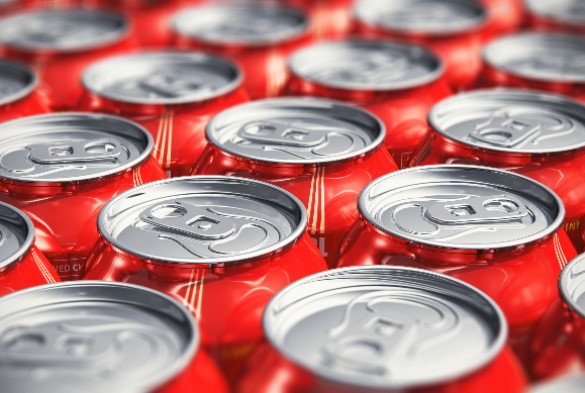Potential 16 Billion Euro Savings: Sugar Tax Proposal in Germany
A simulation study conducted by researchers from the University of Liverpool and the Technical University of Munich (TUM) demonstrates that a soft drink tax in Germany would have significant positive effects.
The study calculates the effects of tiered manufacturer’s levy and flat-rate taxation of soft drinks for Germany and finds both variants would reduce sugar consumption and help avoid illness. The tax could save up to 16 billion euros in national economic costs during the period 2023-2043.
In Germany there has been a voluntary commitment on the part of the beverage industry to reduce the sugar content of soft drinks since 2018. In early 2023, a study with the participation of Michael Laxy, Professor of Public Health and prevention at TUM, showed that the impacts fall significantly short of the expected effects.
A team led by Michael Laxy and the University of Liverpool’s Dr Chris Kypridemos has now reported its calculations on the effects of introducing a tax in Germany. The study is published in PLOS Medicine.
According to the simulation, a flat-rate 20 percent surcharge on soft drink prices would reduce daily sugar consumption by one gram per person. Looking at men between 30 and 49 years of age only, the amount would even be almost three grams. The impact of a 30 percent reduction of sugar in beverage formulas, as was observed in the United Kingdom after the introduction of a tiered levy, would have even more pronounced effects.
Dr Chris Kypridemos, Senior Lecturer in the Department of Public Health, Policy & Systems said: “This is yet another example that prevention at the population level through policies that promote a healthier environment is both effective and cost-saving. Although a sugar-sweetened beverage tax may seem like a small step in the right direction, the potential health and economic benefits would be substantial in Germany.”
Health effects
When it comes to health effects, the models make quite a clear statement: In both taxation models there were significantly fewer cases of obesity, type 2 diabetes and cardiovascular disease. “The figures for type 2 diabetes are particularly impressive,” says lead author Karl Emmert-Fees. “According to our models, over the next 20 years taxation would result in as many as 244,100 fewer people becoming ill with type 2 diabetes later or not at all.”
Reduced national economic costs
According to the researchers, the positive impacts would also manifest themselves as financial savings: A tax on sugary drinks would mean less treatment of patients. Costs resulting from sick leave, inability to work and similar factors would also be reduced. The team determined national economic savings of approximately 16 billion euros for the simulated period with a tiered tax, of which about 4 billion euros is accounted for by health-care costs. A 20-percent flat-rate tax would still result in a total of about 9.5 billion euros.
Contribution to policy debate
According to the results of the simulation, which the team was able to replicate using a second model, a tiered manufacturer’s levy would have stronger positive impact than a flat-rate tax. “Politicians will have to decide whether or not taxation of soft drinks would be practical for Germany,” says Michael Laxy. “We want to present objective arguments for this debate. Our study shows that a tax on sugary beverages is a relevant measure for the prevention of overweight, diabetes and heart disease. Approaches such as information campaigns are justified, but are not sufficient and can only be one component of an effective overall strategy.”

